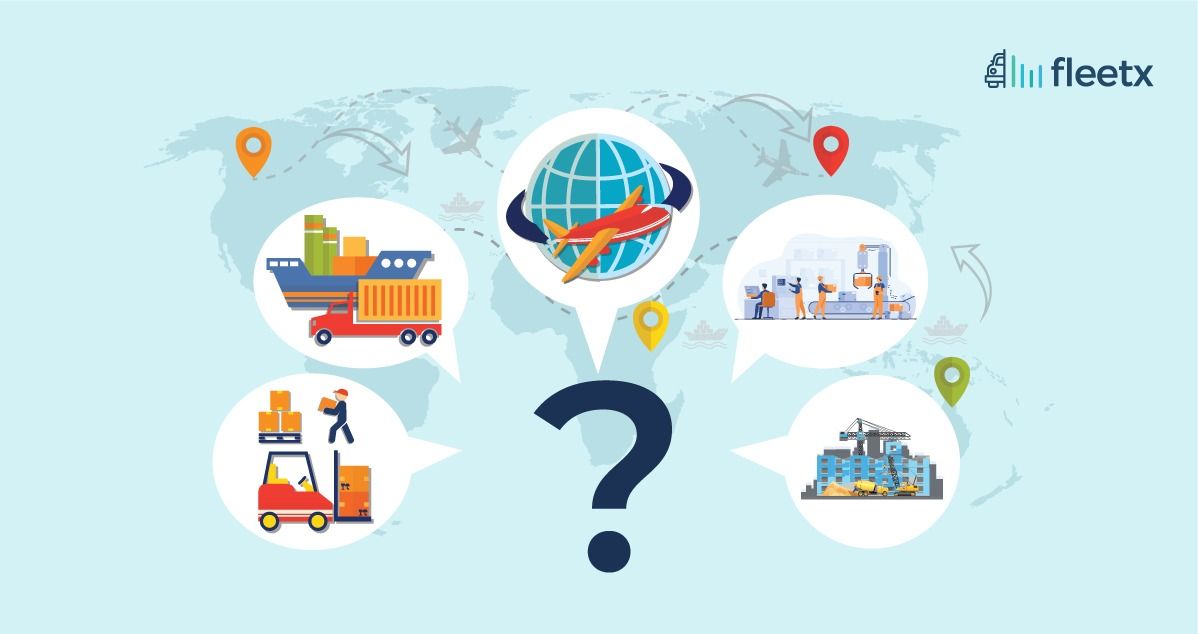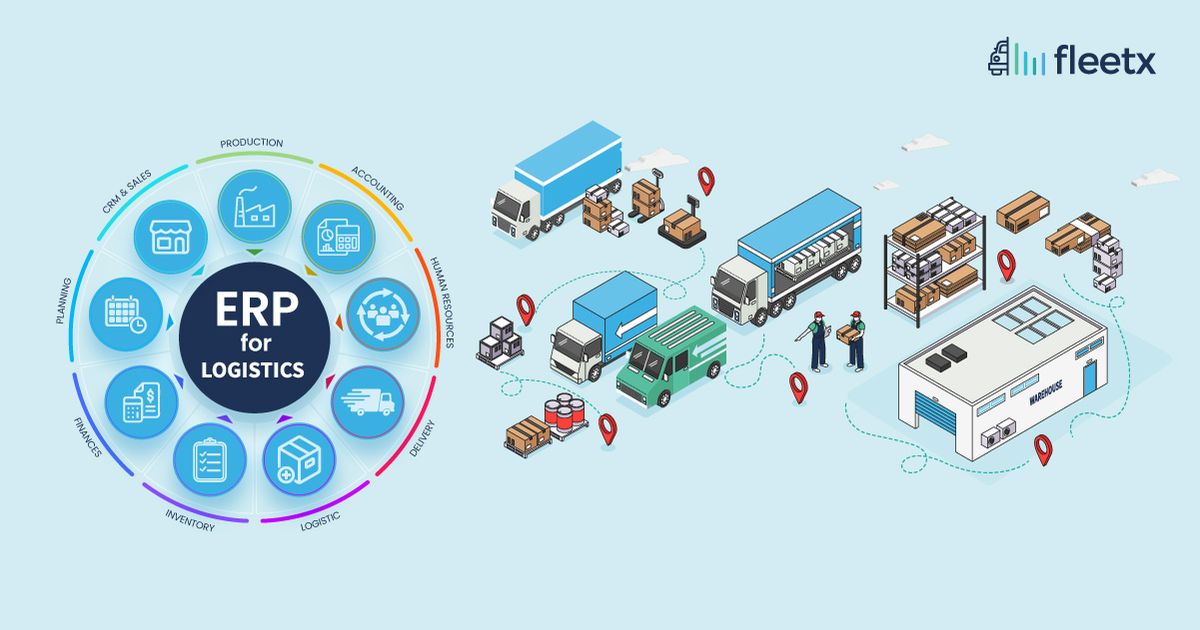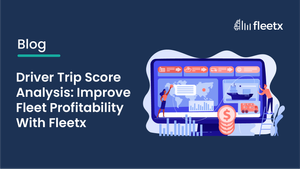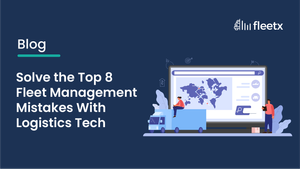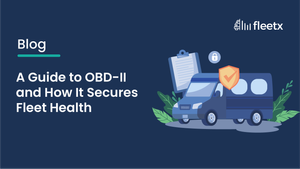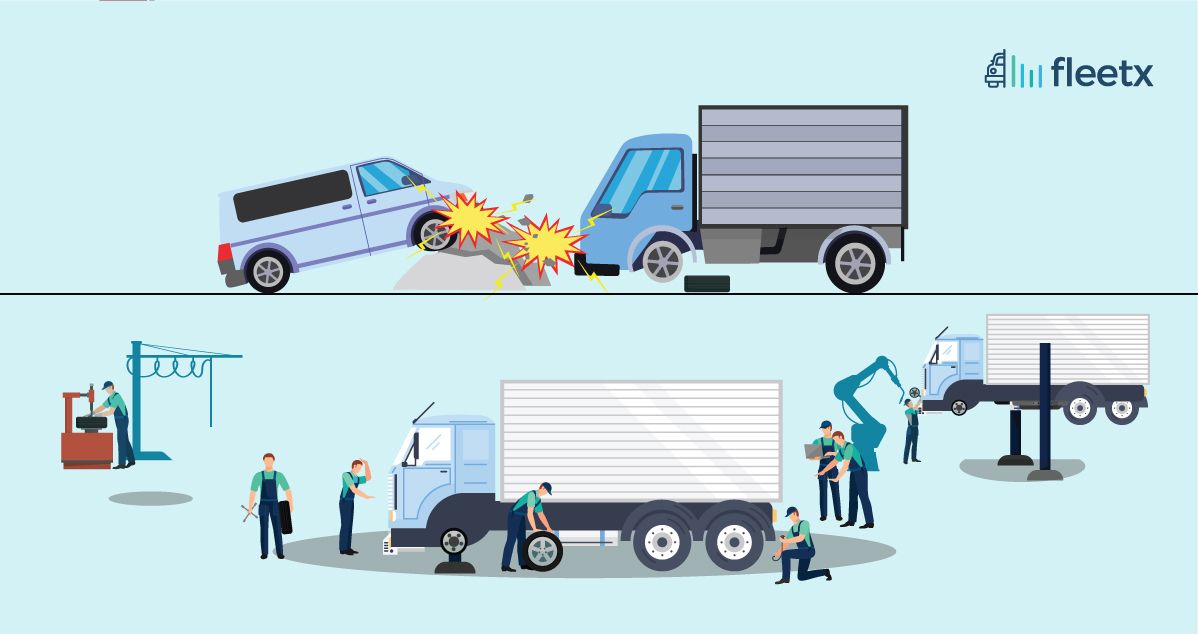
If you manage a fleet business, you know that accidents will occur despite having and adhering to several safety regulations. Accidents can happen for a variety of reasons, and fleet managers frequently have to deal with them. While it is impossible to completely solve all of these issues, fleet managers can still manage their fleet to some limit.
As per Times of India, every year, almost 50,000 collisions that take place are brought on by trucks or lorries. It is obvious that commercial vehicles will be involved in incidents ranging from minor scrapes to major road accidents involving other vehicles, thus fleet businesses need to be ready for accidental maintenance. They should have a routine fleet maintenance procedure in place, and it should never be disregarded because accidents can result from it and cost them a lot. So, it is crucial to realize that the way accidental fleet is operated has a direct impact on the overall cost of both the fleet and cargo.
Fleet Accident Management
Fleet accident management system is intended to handle cargo claims, vehicle claims, driver safety, vehicle repairs, and other issues related to accidental fleets. It includes all safety recommendations and helps in lowering the number of accidents. Operating disruptions are less likely to happen with an effective fleet accident management system. It also lowers the total operational expenses. Before any fleet enters into transit, there are a few crucial actions that must be completed, including:
Preventative maintenance
Depending on the maker, model, mileage, and condition of the fleet, each vehicle undergoes routine maintenance. Additionally, fleet managers can plan maintenance based on when the vehicles were last serviced. Regular vehicle inspections are necessary to keep track of the vehicle's condition and make sure it is safe to drive.
In order to determine whether any repairs are necessary, preventive maintenance is done, which involves inspecting the state of the vehicles. By doing this, it may help in preventing emergencies and other disruptions during the transportation.
Maintaining vehicles properly and keeping them in working order will ensure that the vehicle won't endanger the driver. If companies are using GPS or telematics to monitor driver behavior, keeping an eye out for dangerous driving behaviors like speeding and excessive braking or acceleration can help both the driver and the vehicle to operate better.
Vehicle PDI
Pre-delivery inspections, or PDIs, are required to be performed in order to properly verify the vehicle for any type of manufacturing flaw, body damage, missing features, or malfunction.
Driver training
Running a safe fleet requires providing drivers with training on how to prevent accidents as well as what to do in the event that one does happen. You want all of your drivers to be aware of what to do in the event of a collision. Holding regular discussions on vehicle safety and including this information is the best way to train the drivers. Their actions following an accident can have a significant impact on the result.
What actions should be taken after an accident?
Accidents occur for many reasons; preventative maintenance can avoid vehicle breakdowns during transit, but there are many other factors that can cause huge losses, and fleet managers should know what action they have to take according to the accidental needs. Here are a few things that should be known and done after an accident.
Driver safety : First and foremost, the company must make sure the driver is secure. If the driver needs medical assistance, fleet management must see to it that they are given it right away.
Spot survey: After a major accident, a spot survey is done, and the surveyor checks all the problems and damages in the vehicle and then creates his report and presents it to the fleet manager. According to the survey, a preliminary cost is determined and sent based on the vehicle requirement.
Cargo insurance: According to the Institute Cargo Clauses (A), you should have cargo insurance because it covers your entire cargo. This insurance provides cover for all the damage, which means that goods would be covered against any physical loss or damage from an external cause, except as excluded. Cargo insurance will help companies in the case of an accident, as the goods will be covered under insurance and companies won't need to pay for the goods' damage.
Commercial Fleet Insurance: Commercial fleet insurance safeguards vehicles used to move goods from one place to another. The trucks are subject to a variety of risks due to continuous use, which involves long distance travel, including accidents, natural disasters, and significant wear and tear. All of these hazards have associated expenses, and thorough commercial fleet insurance can ensure that the fleet businesses continue to operate without interruption. It enables fleet managers to operate their businesses effectively and free of unexpected expenses. In the case of an accident, fleet managers must be familiar with the essential insurance procedures.
Vehicle damage evaluation: First and foremost, make sure that any involved vehicle moves to a secure area away from danger. After the spot survey, you must take care of the vehicle damage. The cost of repair and upkeep will vary depending on the severity of the damage and your insurance provider's criteria.
Legal action and internal policy: When a fleet vehicle is involved in an accident, the business is frequently the object of a litigation that seeks to establish the rightness of the driver and the wrongness of the opposition. Every fleet manager should have official records of the mishap. Along with securely preserving documents and images, businesses should also address all the claims and resume operations as quickly as possible.
Vehicle Replacement Process: If your fleet suffers massive damage and the chance of repairing it is slim, fleet managers need to be prepared for the replacement process. They can sell the scrap of an accidental vehicle and save some money.
Fleet and vehicle schedule: Fleet managers must adjust a new fleet and driver schedule after an accident because either the driver or the vehicle will be out of service for a period. Depending on the kind of vehicle they require, they may hire a temporary driver and bring a rental vehicle. Fleet managers must also determine the cost of accidents in order to include them in the fleet's total budget and have a strategy in place to deal with the associated costs and circumstances.
To Conclude
Accidents will occur despite safety measures. Because of this, it's critical that the fleet managers have rules and processes in place to enable them to handle any accident as effectively as possible. Fleet managers will be able to deal with downtime only by planning repair and maintenance work.
The company should be educated to notify an accident situation as soon as possible, and they should be ready to take prompt, effective action that will benefit their drivers and fleet.


